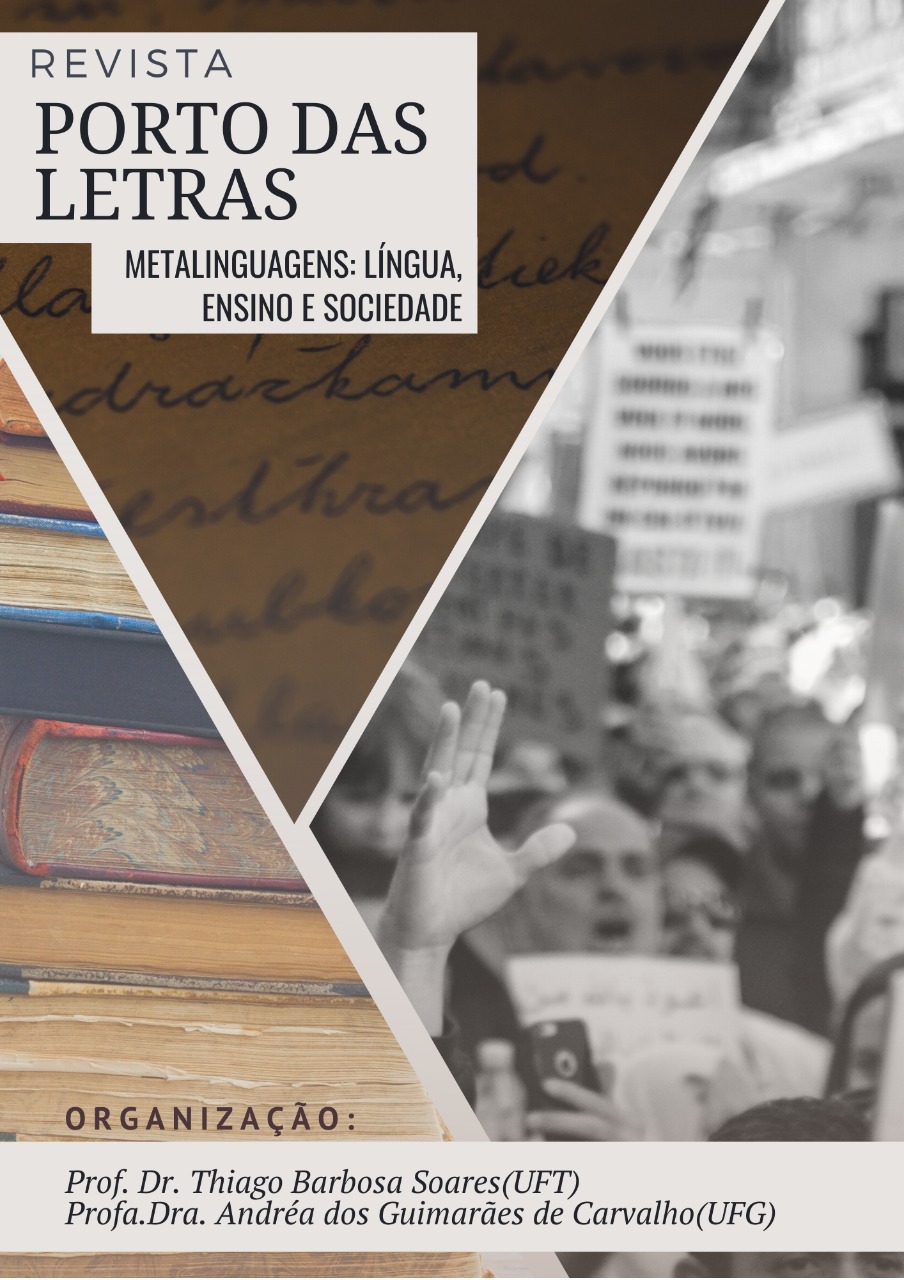O Ethos na Carta ao Povo Brasileiro
Keywords:
Ethos; Pathos; Carta de Lula da SilvaAbstract
This paper analyzes the construction of the Lula ethos in the letter to the Brazilian people. The theoretical basis is based especially on Charaudeau (2006) and Meyer (2007). This research is documentary and of qualitative approach, due to the interpretation and the construction of meanings. The corpus of analysis is the speech of the ex-president Lula in the Letter to the Brazilian people from which eleven fragments were chosen for analysis. In these excerpts, the ex-president mentions his trajectory alongside the people, shows the reasons for his candidacy for the presidency, affirms that he did not commit a crime, so his imprisonment is unjust, that he would always fight, even though he lost his partner and suffered accusations; declares that the UN has recognized its right to the candidacy, but the courts have denied it. In addition, it exposes that it is censured, that perhaps was not arrested if it did not lead the intentions of votes; shows certainty that one day he will be acquitted, when he will be ruling with Haddad; thanks those who show solidarity and asks that they vote for Haddad, who will be a Lula for millions of Brazilians. The research shows the construction of several ethos, among them the ethos of honesty, humanity, seriousness and innocence. We can see from the research that the construction of the ethos is an efficient persuasion strategy of the audience for which the discourse is intended. Thus, the speaker constructs a positive image before an audience as an efficient argumentative strategy in the attainment of persuasion.
References
GODOY, Arilda Schmidt. Pesquisa qualitativa: tipos fundamentais. Revista de Administração de Empresas. Vol. 35, N.3, p. 20-29, maio-jun. 1995.
MEYER, Michel. A unidade da retórica e seus componentes: éthos, páthos, logos. In: MEYER, Michel. A retórica. São Paulo: Ática, 2007.
MOSCA, Lineide Salvador. A atualidade da retórica e seus estudos: encontros e desencontros. In: Actas do I Congresso Virtual do Departamento de Literaturas Românicas (Retórica). São Paulo: USP, 2008. Disponível em:
dlcv.fflch.usp.br/sites/dlcv.fflch.usp.br/files/linei002_0.pdf. Acesso em 03 abr. 2019.
PERELMAN, Chaim; OLBRECHTS-TYTECA, Lucie. Tratado de argumentação: a Nova Retórica. Tradução de Maria Ermantina de Almeida Prado Galvão. São Paulo: Martins Fontes, 1996.
PRODANOV, Cleber Cristiano; FREITAS, Ernani Cesar de. Metodologia do trabalho científico [recurso eletrônico]: métodos e técnicas da pesquisa e do trabalho acadêmico. – 2. Ed. – Novo Hamburgo: Feevale, 2013.
REBOUL, Oliver. Introdução à Retórica. Tradução de Ivone Castilho Benedetti. São Paulo: Martins Fontes, 2004.
SOUZA, Gilton Sampaio de; COSTA, Rosa Leite da. O professor de Letras e o seu discurso: a constituição do ethos de professores do ensino superior. In: Revista Letra Magna. Ano 05, N. 10, p. 1-16, 2009. Disponível em: http://www.letramagna.com/professorletrasdiscurso.pdf]. Acesso em 14 out. 2018.
Downloads
Published
How to Cite
Issue
Section
License
Os autores concordam com os termos da Declaração de Direito Autoral, que se aplicará a esta submissão caso seja publicada nesta revista (comentários ao editor podem ser incluídos a seguir).

